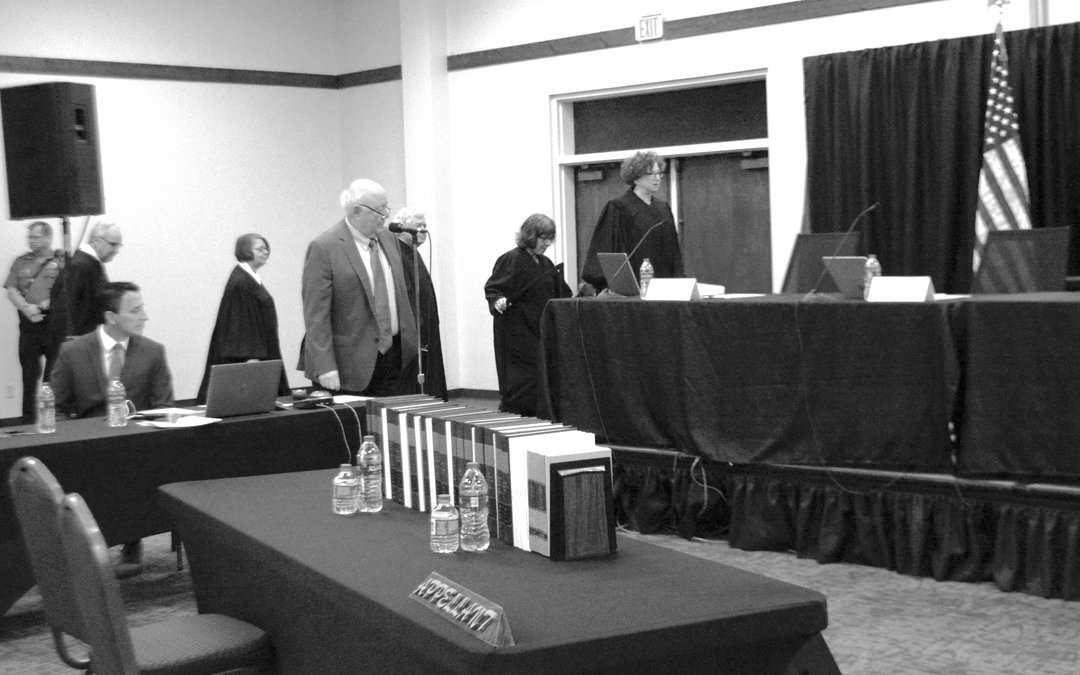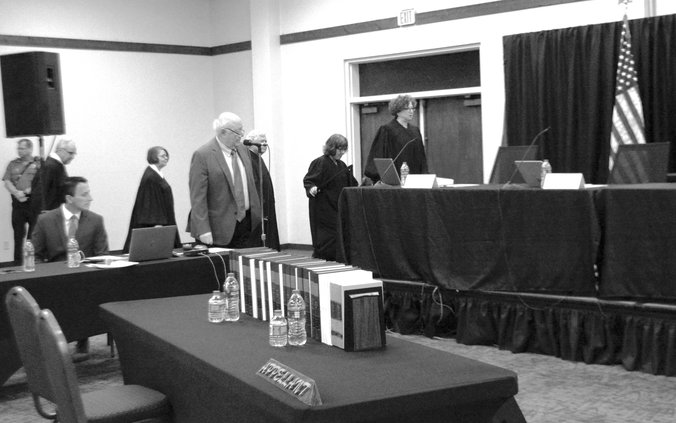By holding a special session Wednesday in Great Bend, the Kansas Supreme Court continued its ongoing effort to make the court’s work accessible to more people. Oral arguments were heard in a criminal case – an appeal to a murder conviction – and in a civil case, where the U.S. District Court of Kansas has asked for clarification on two questions of Kansas law. Chief Justice Marla Luckert spent some time explaining what will happen next. Unlike a courtroom drama, Wednesday’s proceedings did not end with a verdict.
“Judges aren’t politicians, we don’t decide policy,” Luckert said. They just interpret the laws based on the Kansas or U.S. Constitution and case precedent.
“We follow precedent and the statutes; we don’t evaluate if a law is ‘good policy,’” she said. “Our job is to take that law and apply it.”
Compare this to the U.S. Supreme Court, which is expected soon to hear decisions on cases dealing with reproductive rights and gun control. These are political issues, but U.S. Supreme Court Justice Amy Coney Barrett said Monday that judges are not deciding cases to impose a “policy result.” Instead, they will make their best effort to determine what the law and the Constitution require.
The Los Angeles Times reports that even though the nation is “splintered by partisanship and wracked by incivility,” Barrett said Americans should judge the Supreme Court, or any federal court, by its reasoning. She urged Americans to “read the opinion” before judging the outcome of a decision.
“Does (the decision) read like something that was purely results-driven and designed to impose the policy preferences of the majority, or does this read like it actually is an honest effort and persuasive effort, even if one you ultimately don’t agree with, to determine what the Constitution and the precedent requires?” she asked.
In any court, public opinion is not supposed to be an issue for the justices to consider. While justices are human, that is a duty that all good justices take seriously.




